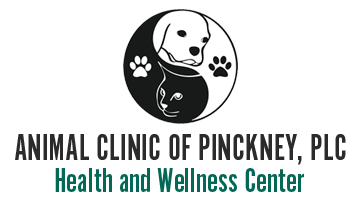Pet health and safety is the number one priority of Animal Clinic of Pinckney. For this reason, our technicians are trained in how to best monitor patients before, during, and after surgery as well as how to monitor sick pets. Many things are taken into account when a patient is monitored. A pet’s vitals are taken on a regular basis to ensure they are safe while being operated on or treated. Vital signs that are usually taken include:
- Heart rate
- Respirations
- Blood oxygen levels
- Temperature
- Pain
Hospitalized patients will also be monitored for food and water intake as well as urine and stool output. Knowing how much your pet is eating or drinking or how often they are urinating and defecating can be key to discovering what treatments they need. Monitoring patients is also an important way to tell how medications may be affecting them. Some pets may react adversely to medications or treatments which is why it can be very important to monitor them closely following a new medication. Symptoms of an adverse reaction can be:
- Vomiting
- Diarrhea
- Difficulty/labored breathing
- Lethargy
Observing pets who are receiving new medications or treatments is also key to knowing if the treatment is working properly. Ensuring your pet is showing signs of improvement informs the doctor that the treatment that was prescribed is the correct one for your pet and their ailment. If no signs of improvement are present, a different treatment or medication may be needed.
